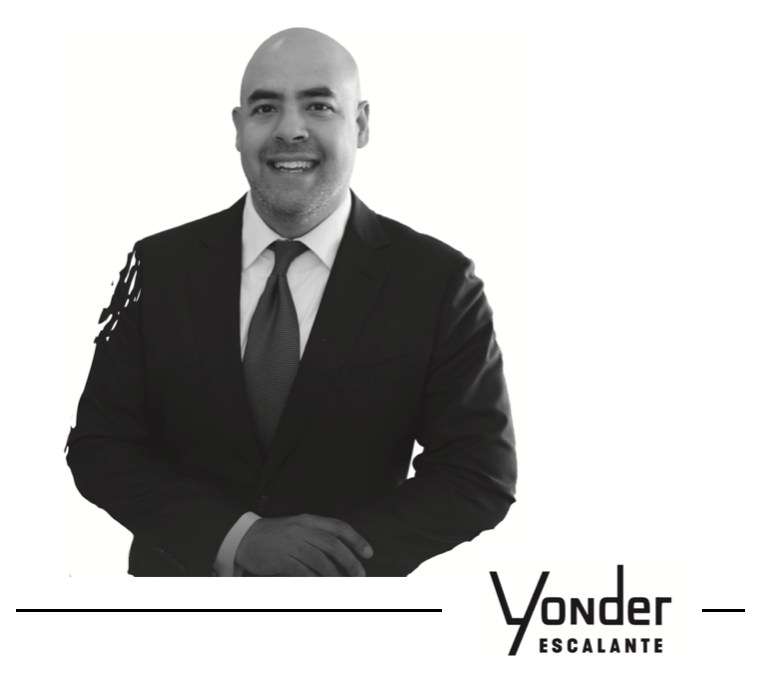By: Deven Nongbri
Advisor
YONDER HOSPITALITY
Having worked in multiple industries across different continents and in a number of roles, both leading organizations and individually contributing to different companies’ successes, I’ve come to appreciate my family, my community and my career even more than I did when I was just striking out on my own.
What advice would I give to my younger self that might help ease some of the anxiousness that I often felt in different situations? What guidance might have helped me make better decisions at key points in my own life?
There are certainly lessons learned and life suggestions I could pass along, but it might be more useful to share some of the “hard realities” that only come with experience…and some reflection.
Most of your friends are probably just acquaintances
How many of you have over one thousand connections on LinkedIn?
Three thousand? Five thousand? That’s a wonderful thing, making all of those links and connections to help advance your career, but how many of those people do you actually know? How many of those folks can you pick up a phone and call today?
Probably not one thousand, or even five hundred. Your collection of connections is most likely made up of many hundreds of people you may have only met briefly in person (or at all) from a conference or even at a company gathering. These folks aren’t going to be there when you need a reference, a potential good word about your work or even a shoulder to cry on.
Your true friends are probably on a GroupMe or text thread that’s at least a decade old, and the conversation continues despite people living on different continents, in different time zones, getting married, having kids, getting divorced, suffering the loss of a family member and surviving the pandemic together (at least virtually).
Your true friends are there to help, support and celebrate the highs and the lows of work life and personal life, and – this is key – they need or want nothing in return. They are there for you, and you are there for them. They are your real friends, and the earlier you can identify that handful of people, and support them and keep the lines of communication open, the richer your life becomes.
You may only see your loved ones a few more times
Our immediate family experienced a wave of untimely passings during and after the pandemic that took all of us by surprise. Upon reflection, though, most of these deaths could have been expected had we looked a little more closely at each persons’ circumstances.
Poor health played a defining role in each case, so we rightly could have expected premature death as a possibility, but instead we focused on living our lives and not calling or visiting as often as we could have, in the belief that we’d “see them at Thanksgiving” or the next holiday.
The reality is, especially for Millennials and Gen Xers living in different cities (states or countries) from their parents and other extended family, those visits and “next holidays” are but a couple of times a year. And with the average lifespan falling to 77 years in the US, the math may not look good for many people.
Let’s say you’re living in Chicago but your 70 year old parents are still on the east coast. You get together every summer and then see them over winter break, so twice a year gatherings. When you do the math, you and your family will see your parents just 14 more times. Obviously, these are averages, but you get the idea.
Find ways to prioritize quality time with your family and (real) friends. You are actually giving yourself and your loved ones the gift of presence, and you won’t regret this kind of action.
You never quite know what you want to be when you grow up
There’s a belief that you should know what you want to do with your life by age 20, and this is simply a lie. My own path was a little different, as I knew as a 14 year old I wanted to be in marketing, but doing what, I wasn’t sure. And I certainly didn’t know how to get there, even as a college student.
But I’ve known other folks, good friends and colleagues, who’ve spent years stressing out over a lack of a clearly defined path both in school and in the workforce.
I’ve come to know now, having worked in the community, on boards and in numerous private and public company settings, that the most successful people only have the faintest idea what they want to do. They just ask great questions to identify opportunities, and have a bias for action that has allowed them to capitalize on the opportunities they identify. And then they go and do.
If you have a bias for action, and ask the right questions, you’ll be fine.
Real and truly useful hacks are few and far between
Despite the popularity of “life hack” channels on Instagram or TikTok, there are very few shortcuts that truly provide the results you think you want (or need).
If anyone tries to sell you the latest hack, you should run away as fast as you can. In my own case, it seems that AI hacks are fast becoming fodder in my Twitter feed: ChatGPT prompts for sale everywhere I scroll.
LOOKING BACK
The only (mostly) successful hack is painful, relentless consistency. It’s not easy, but it works. You. Can. Do. The. Hard. Things.
(But…) Hard work and consistency aren’t always enough
There’s a common phrase in some sales circles, “Hard work beats talent when talent doesn’t work hard.” You may have seen this on motivational posters at the office or in someone’s email sign-off, and it was a bit of a mantra for the “hustle hard” generation of the early 2000s.
But things actually don’t work out every time you’ve got something big to do. It’s just the way things happen, despite our most positive intentions. Do your best, but don’t blindly assume it’s always going to be enough.
Hard work and consistency will always give you a shot, but sometimes you’re just going to get beat. If you lose, make sure it’s because the other person is simply more talented than you.
Never beat yourself, and know that your hard work and consistency gave you the best chance at realizing an opportunity. It probably doesn’t hurt to ask those great questions, too.
The world is definitively not fair
There is plenty of uncontrollable luck that eventually impacts our lives: Where we are born, to whom we are born, and the circumstances of our early childhood all have an outsized impact.
Bad people win and good people lose—all the time. The pandemic showed us as much, no matter where we were in the world.
But within that dark context, there are bright spots: The opportunity playing field is leveling. The Internet and access to technology is opening up the planet so that people everywhere can get chances to grow and contribute.
The world may never be truly fair, but it will always belong to those who make the most of what they have before them. Keep your eyes open to opportunities, have your good questions at the ready and keep that bias for action.
Be action oriented
Speaking of action, this is something that caused me a great deal of stress early in my career. I was always the guy taking notes, not saying a whole lot in meetings because I (wrongly) thought I had nothing to contribute. I was new, right out of school – what could I possibly know?
That’s exactly the mindset that held me back at the start of my career, and it’s one that I look for in new hires and younger teammates so I can try and help them get past it, and really unlock their potential.
If you can adjust your natural tendencies to favor action, you’ll find that you’ll get that experience and will actually have something real to contribute. You will probably do or say the wrong thing more than a couple of times, but you can learn from most of those kinds of mistakes, so it becomes a net positive.
If someone did a great job on a team project or helped you in any way, recognize or thank them right then and there, and don’t wait for the “right time.” Regret is more painful than failure, so when in doubt, just do.
Conclusion
Developing an awareness of these “harsh realities” has allowed me to improve my decision-making and make life changes that have unlocked new growth and progress in both business and at home.
My hope is that others can think (but not too deeply) about each of these truths, and determine if they apply to their own businesses or personal lives.




